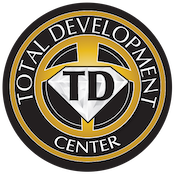What are Summer Schools and Why Should I Go?

What are summer schools? Summer schools may sound like a drag, but compared to the regular school year, it can be quite fun! In summer school, you study only one subject at a time, so your experience is hyper-focused and your time investment to get to mastery is shorter.
You can choose from a wide variety of topics: from math to science, game design to engineering. These summer school classes may run from one week or up to six weeks. You can find summer learning opportunities at your local high school, community college, museums, recreation centers, and colleges and performing arts centers.
Understand the Benefits of Summer School
The most important part of choosing a summer program or course is knowing your goal. You may want college credit, to brush up on academic skills, meet other students with similar interests, or learn a new skill. Some classes even give you a behind-the-scenes look at different careers. Once you determine your goal, you’ll be able to narrow your opportunities and choose a class that’s right for you. (You can learn more about goal setting here.)
Summer school provides a great opportunity to prep for your ACT and SAT tests. Whether you take a focused prep course or just strengthen your math or language repertoire, summer school can boost your test performance in the fall.
Additionally, studies show that when out of school, learning skills grow stale. Once you’re out of the daily habit of school and learning, it’s easy to forget those complicated math formulas or verb conjugations. And your brain isn’t able to focus quickly on studies. It takes time to recover from this summer learning loss. If you’re on a college track, you don’t want this huge setback. Summer school will help keep your learning skills fresh.
Explore the Different Types of Summer School
From traditional academic classes to specialized programs, there are many different types of summer classes available to you as a high schooler. Your experience doesn’t have to be about sitting in a classroom, listening to lectures. Consider a creative writing course on a college campus. Look into leadership classes with a local organization. You can learn coding, game development, welding, aircraft maintenance, or aerospace engineering.
If you’re looking for something more adventurous, apply to a summer program at a well-known college all the way across the country. Not only will you increase your knowledge, you’ll get a taste of college life and gain some independence in the process. Consider a language immersion class in another country. Or study climate and geology with National Geographic’s student travel program.
The list is endless — it just depends on your budget, time availability, and your willingness to plan ahead.
Consider the Time and Cost Commitment
Before enrolling in a summer school program, it is important to consider the time commitment involved. If your family has a summer vacation on the books, your time will be more limited. If you plan to get a summer job or do community service, you may need to plan for a bit of flexibility in your course or apply to shorter courses.
Don’t forget about the financial commitment. While some courses and programs offer scholarships, others are costly and can have a big impact on the family budget.
So what are summer schools? A great opportunity for you! Whatever course or program you choose, it doesn’t have to be dull and boring. Choose a topic that excites you, or if you’re pursuing purely academic assistance, search out a teacher who inspires you.
If you need help choosing the right program for you, contact us — we work with high school students every day to help them succeed in all areas of life and be fully prepared for college.
